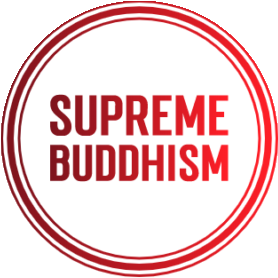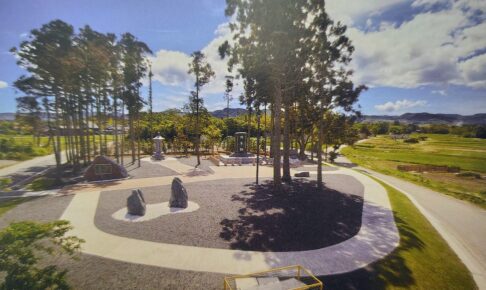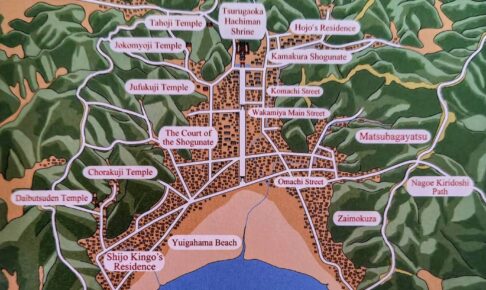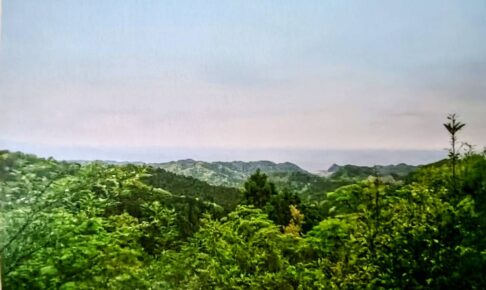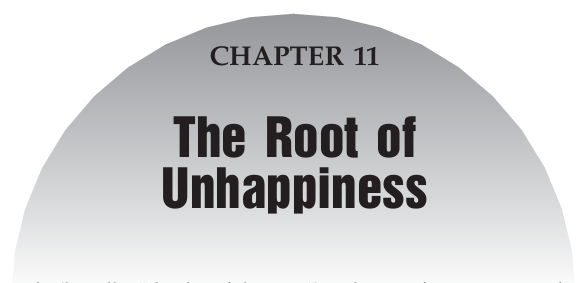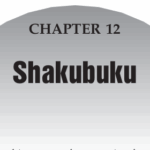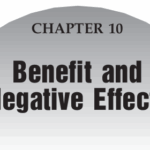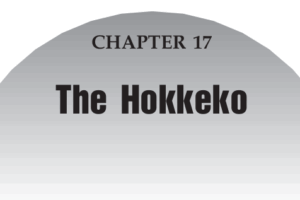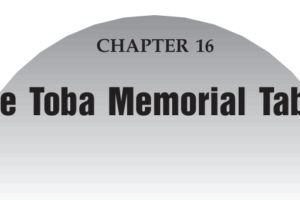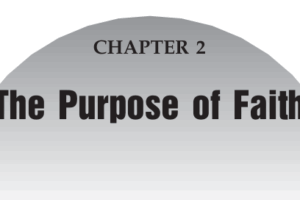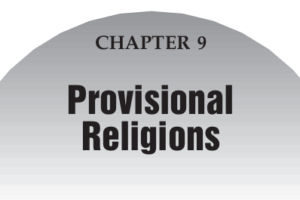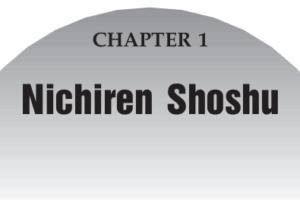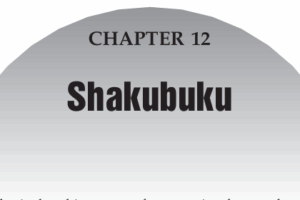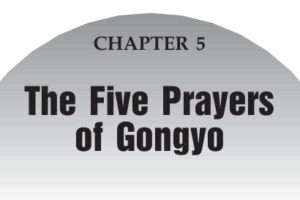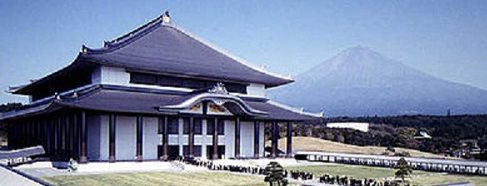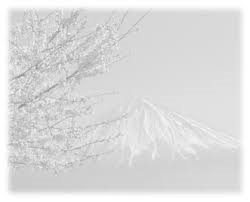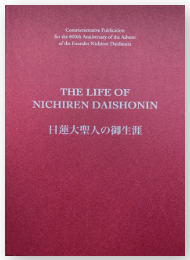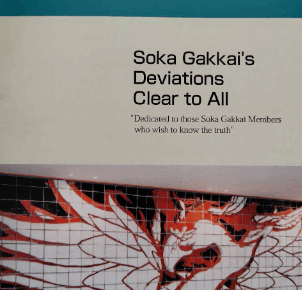Hobo (literally, “slander of the Law”) is the act of going against the teachings of True Buddhism. The correct Buddhism in the Latter Day of the Law is the Three Great Secret Laws as expounded by Nichiren Daishonin, who stated:
If you doubt or slander even in the slightest, you will fall into the hell of incessant suffering.
(MW, Vol. 1, p. 159, Gosho, p. 906)
Slander of the Law is the cause that invites all misfortunes. When we commit an act of slander, our life condition diminishes causing us to suffer as a result. That is why slander is the root of all unhappiness.
The “Fourteen Slanders” are fourteen slanderous attitudes. They are:
1. Arrogance: when one makes light of Buddhism, placing excessive confidence in oneself.
2. Negligence: when one neglects to do the Buddhist practice out of laziness.
3. Egotistical judgment: when one interprets Buddhism through one’s egotistical viewpoint; to interpret or judge the deep and profound teaching with distortion. 7374 Nichiren Shoshu Basics of Practice
4. Shallow understanding: when one makes judgments about Buddhism with a shallow understanding of Buddhist reasoning.
5. Attachment to earthly desires: when one takes advantage of Buddhism or has no yearning for Buddhism due to being caught up in one’s earthly desires.
6. Lack of seeking spirit: when one does not seek to understand the deep Buddhist doctrines.
7. Disbelief: when one does not believe in the correct Buddhism or does not wish to take faith in it.
8. Aversion: when one feels repugnance towards Buddhism or when one insults those who take faith in it.
9. Doubt: when one has doubts and delusions about Buddhism.
10. Defamation: when one criticizes Buddhism and reviles those who take faith in it.
11. Contempt: when one has contempt for Buddhism or those who take faith in it.
12. Hatred: when one detests and opposes Buddhism or has hatred for those who take faith in it.
13. Jealousy: when one is jealous of the prosperity achieved through correct Buddhism or is jealous of those who take faith in it.
14. Resentment: when one resents Buddhism or bears grudges against those who take faith in it. We listed fourteen kinds of slander here, but every religion, idea, action (or inaction) that goes against the correct practice of Nichiren Daishonin’s Buddhism is, in fact, slander. This is especially true for those who follow distorted teachings. Whether they recognize it or not, they are going against the teachings of the True Law. Even if these people do not speak ill of Nichiren Shoshu, they cannot escape committing slanders.
Nichiren Daishonin stated the following about the last days of slanderers:
In the Latter Day of the Law of both Shakyamuni and the Buddhas before him, the rulers and people who despised the votaries of the Lotus Sutra seemed to be free from punishment at first, but eventually they were all doomed to fall.
(MW, Vol. 1, p. 241, Gosho, p. 1397) T
he ruler and other high-ranking officials will be carried off to a foreign country, and these people who conducted the prayer ritual will die insane, flee to other provinces, or hide themselves in the mountains and forests. The messenger of the Lord Buddha Shakyamuni [Nichiren Daishonin] has twice been paraded through the street, and his disciples have been thrown into prison, killed, injured, or driven from the provinces where they were living. Therefore, the guilt of those offenses will surely extend to each inhabitant of those provinces. For example, many will be afflicted with white leprosy or all kinds of other terribly grave illnesses. My disciples should understand this matter thoroughly.
(MW, Vol. 6, p. 242, Gosho, p. 1271)
AVOIDING SLANDER
Even though we have had the great fortune to encounter Nichiren Daishonin’s Buddhism, and have already become believers, we may commit any of the Fourteen Slanders through lack of awareness. As the Daishonin stated:
I realize that although they profess faith in the Lotus Sutra and clasp its scrolls, they act against the spirit of the sutra and thereby readily fall into the evil paths. To illustrate, a person has five major internal organs, but should even one of them become diseased, it will infect all the others and eventually he will die.
(MW, Vol. 1, p. 253, Gosho, p. 1456)
Although we protect the Gohonzon and practice True Buddhism we will erase our own benefit if we commit any of the Fourteen Slanders. Some examples might include not doing Gongyo out of laziness or saying bad things about other believers. There are several kinds of particularly serious slanders that believers of Nichiren Shoshu might commit. One of these is the offense of slandering the Three Treasures. The Daishonin stated:
The slander of the Buddha or of the Priest is the slander of the Law, for the Three Treasures are of one body …. Therefore, the Lotus Sutra stated, “it will eliminate the seed of Buddhahood in any world.”
(Gosho, p. 608)
The True Buddha, the True Law, and the Priest are the treasures that will save every country and lead all living beings to attain Buddhahood. The Buddha is Nichiren Daishonin, the True Law is the Gohonzon as revealed by the Daishonin, and the Priest signifies the successive High Priests beginning with the second High Priest, Nikko Shonin. To speak ill of, or to slight, the Three Treasures of the Buddha, Law, and Priest, is like scorching the seed of Buddhahood for all living beings. This is an extremely grave slander.
Those who have put their hands on the Gohonzon in anger, or displayed contempt for the Daishonin or the High Priest, have experienced serious negative effects for slandering the Three Treasures. By extension, the priests of Nichiren Shoshu, who are the direct disciples of the High Priest and protect this deep and profound Buddhism, are also included as a part of the Treasure of the Priest. It is important to keep this in mind and to interact with both senior and junior priests in a respectful manner.
Another slander that believers must be on guard against is ignoring the instruction against accepting a single verse from any of the other teachings. One is committing a slander when one accepts and venerates religious objects other than those of Nichiren Shoshu (such as a statue of Buddha, crucifix, etc.), or visits or donates to the temples, churches, or shrines of heretical religions. On this point, Nichiren Daishonin stated:
To revere another teaching as its equal…can only be the cause for disaster….To mix other practices with this Nam-Myoho-Renge-Kyo is a grave error.
(MW, Vol. 3, p. 266, Gosho, p. 1219)
To consider Nichiren Shoshu and heretical religions equivalent is the same as mixing poison with medicine. It is also important not to accept religious objects even if you intend to discard them later. A third slander the believers must avoid is that of onshitsu among the believers of our faith, that is, to be jealous of and denounce other believers. Regarding this the Daishonin stated:
The fourth Volume of the Lotus Sutra states, “The offense of uttering even a single derogatory word against the priests or laity who believe in and preach the Lotus Sutra is even graver than that of abusing Shakyamuni Buddha to his face for an entire kalpa.” The Lotus Sutra also states, “[If anyone shall see a person who embraces this sutra and try to expose the faults or evils of that person, he will in the present age be afflicted with white leprosy,] whether what he speaks is the truth or not.” Take these teachings to heart, and always remember that believers in the Lotus Sutra should absolutely be the last to abuse each other. All those who keep faith in the Lotus Sutra are most certainly Buddhas, and one who slanders a Buddha commits a grave offense.
(MW, Vol. 3, p. 208, Gosho, p. 1047)
Indeed, those who correctly believe in this Gohonzon have the life of the Buddha emerging in their hearts already. Even if some believers are still poor, sick, or committing evil deeds, there is no doubt that they will eventually change their lives for the better. The benefit of faith and practice in the present will become the cause, and then the effect, of admirable changes in their circumstances and character which will certainly be revealed in the future.
The Daishonin regarded a positive cause made for the sake of the attainment of Buddhahood more highly than its effect, the attainment of Buddhahood. Since each person who correctly believes in this Gohonzon is becoming a Buddha, the Daishonin taught that to be jealous of, or to speak ill about such a person is an offense of slander which will certainly invite negative effects. Moreover, whether such criticism is true or not, the act of slandering believers constitutes slander of the Law. The fourth slander is the offense of impeding faith in the True Law. The Daishonin stated:
Slander is to cause others to abandon the True Law.
(Gosho, p. 279)
This is considered an extremely heavy offense because not only do we commit slander but we cause others to lose faith. This particular slander arises from not keeping our own slander to ourselves but expressing these slanders to others. For example, to say things like, “There is no power in the Gohonzon,” regardless of our own disbelief, or saying, “that person chants, yet still has such a negative character,” constitutes slander of the Law. Whether we recognize it or not, this will destroy the developing faith of other believers and will repel non-believers away from the True Law. Therefore, it is extremely important to avoid these sorts of actions and not to agree with others when they do commit slander.
In order to build truly happy and peaceful lives, it is important to firmly admonish ourselves about our own slander. Although wemay take faith in Nichiren Shoshu, if we commit slander, we will not experience the actual proof of benefit.
In summary, with absolutely no doubt in the great power of the Dai-Gohonzon and following the guidance of the High Priest, we can always confront and overcome our own slanderous nature. This will help us achieve happy lives.

